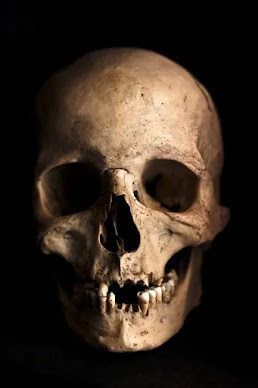Week 10 Story: How to be Dead 101

How to be Dead 101 The man poked his head out of the burial site. His thin wrinkled face squinted at those around him. "I tried being dead," he told his wife, "but I don't think it's stuck to me. I don't know how to be dead." His wife, who had bargained their long lives for some daylight, shushed him. "You are the first one to ever die, figure it out." The man lay back down, grumbling. Flashes of light went off around him. "Congratulations!" someone shouted. He couldn't tell if it was male or female. A smooth, round face, like that of a child's, appeared above him. H screamed and poked his head out of the gravesite again. "Dear, I really don't think I like being dead." His wife shushed him. "We'll figure it out once the men return from hunting. Until then, get back in your grave." The man settled back into his grave forlornly. "You're the first human to eve








